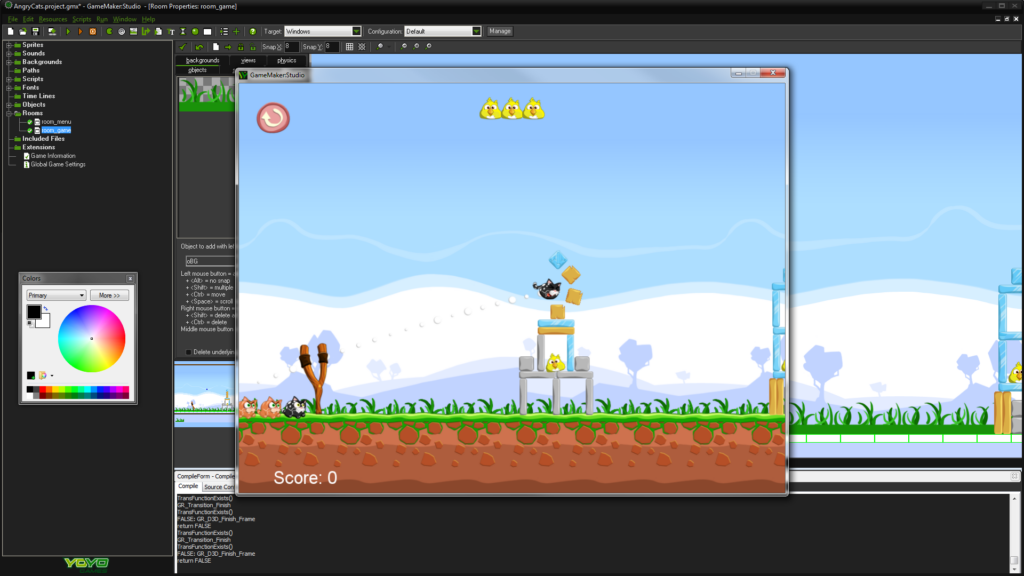
Almost anywhere you look, statistics will show that the number of people who identify themselves as gamers is growing. From small mobile and indie titles to big-budget PC and console games, there is more variety than ever for people to choose from and enjoy. This also means there are more young gamers with dreams of someday creating their own interactive experiences.
While it isn’t the only way to break into the industry, most of these aspiring developers take the education route by attending a college or university. It is there that they discover countless others who share the same goals as them. And more often than not, they meet at least one person who feels as though they’re much more prepared for a game design role than any other student. Why?
Below are three nuggets of advice we recommend to anyone who wants to be just that—a game design student ahead of the curve and well on their way toward a rewarding game development career.
Play Something Else
We don’t blame anyone for wanting to spend time with the games that bring them the most fun. One of the reasons our industry is so great is due to all the types of games we can choose from. However, a chef-in-training who only eats one type of food will only get so far. How can you expect them to prepare a seafood dinner when they rarely, if ever, even eat it themselves?

If you’re all about fast-paced MOBA games like Heroes Of The Storm, pick up something entirely different such as a mobile simulation title (we recommend Game Dev Story, a sim about game development). The more game genres and platforms you get familiar with, the more knowledge you’ll soak in and be able to use later on.
We also recommend playing non-digital games such as board and physical card games. You may find inspiration in them much like the creators of the popular Hearthstone game did. Playing poor-received titles can also be useful for sharpening your ability to analyze games and identify bad game design.
Try On Different Hats
To people who don’t really understand how game development works, the role of game designer is very simple. He or she is in charge of coming up with all the awesome ideas, and that’s it. While there are game designers out there who are lucky (or experienced) enough to make a living just by making design decisions, this is far from the norm.
The typical game designer actually helps out in a number of ways throughout development. Game designers are constantly playtesting the latest build in order to provide feedback to other team mates. Making sure every department (art, programming, writing, etc.) is on the same page every step of the way is also a responsibility, as is keeping the team motivated and inspired even when the next milestone feels far away.
Even if it’s not your thing, take a low level programming class or join a few art classes where you become familiar with industry-standard software. Taking some creative writing, film, and theater classes can help you better understand storytelling in games. Even if you’re no good at any of them, at least you’ll gain an appreciation for other arts that go into making games.
Make Games… Now!
The first and biggest roadblock many game design graduates run into is not being able to apply to certain jobs for one reason— they require experience. Frustration sets in at the thought of being expected to have experience even though you just graduated. Although they can’t say they’ve worked at a studio before, the smart students can at least put down one or more game projects they worked on before getting their diploma.
In fact, it’s now easier than ever to make games on your own or with a few other students thanks to valuable online tools and resources. Many of them don’t even require programming knowledge and can be used by anyone who knows how to work a mouse and keyboard. Of course, no one is expecting you to make a complete title that rivals those developed by a professional team.

Why is this such a big deal to developers looking to hire students fresh out of college? Because saying you want to make games for a living and actually showing that you do is very different. If you didn’t make time from your busy schedule to play around with tools and create a simple game or two, do you really have a passion for game creation or do you merely enjoy playing them?
[su_note]Learn the skills you need to succeed as a game designer at the Game Design School at the New York Film Academy by clicking here.[/su_note]
